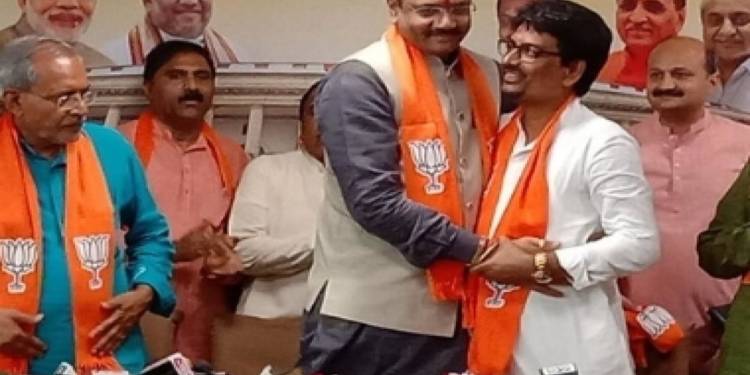What does a political party mean? A group of politicians or a group formed on the foundation of ideas and ideals. In an ideal world, most people would prefer the latter definition, but in the world we live in, rationality trumps idealism. And virtually based on this rationality, the BJP laid the foundation of its Haryana and Maharashtra election campaigns.
If we observe the BJP’s campaign carefully, it will be evident that the BJP’s strategy was to break its opposition parties. The leaders of both the Nationalist Congress Party (NCP) and the Indian National Congress, were imported into the BJP in bulk. In the obsession of winning the elections by breaking the opposition, the BJP also did a great folly by including anyone and everyone in a party based on noble ideals. For example, what are Alpesh Thakor and Babush Maserati doing in the BJP?
Let’s take Maharashtra as an example. It is fairly clear that the BJP imported many political dynasts from other parties. For instance Nitesh Rane, son of Narayan Rane was initially a member of the Shiv Sena, he later joined the Congress party and now his son is in the BJP. Senior Congress leader Radhakrishna Vikhe Patil was miffed with the Congress leadership, BJP sensed and opportunity and his son Suje Vikhe Patil was given a Lok Sabha ticket by the BJP. Later, Radhakrishna also joined the BJP and he contested the Maharashtra elections on a BJP ticket. Funnily, Radhakrishna Vikhe Patil was the Leader of Opposition in Maharashtra and he did not leave any opportunity to corner the BJP government in the state assembly.
Ganesh Naik, once considered Sharad Pawar’s inner circle member, was also imported into the BJP and his son got a ticket for the assembly elections. There was internal opposition to this decision which was quelled in no time. Another young NCP leader Namita Mundada joined the BJP and has been given an opportunity to contest from the Kej Legislative Assembly constituency. Rahul Narvekar the ever-rotating leader who reached Congress party via the NCP, is in BJP nowadays and has also contested elections. If we talk about some other prominent imported leaders, Sameer Meghe, Atul Bhosle, Vaibhav Pichad and Monica Rajale are some of the most famous names.
Now the question arises that despite being the largest party in the world, why does BJP import leaders from other parties? The simple and clear answer to it is – ‘winnability’. Imported leaders are often famous at the grass root levels and have a good standing in specific caste groups. This increases their ability to win. But there is also a clear and obvious disadvantage of it and that is the natural resentment of the public and the cadre. Like the Butterfly Effect, a good leader might lose because of the addition of a bad element in the party. The resentment of the cadre is also natural because they are supposed to get along well with the newly inducted leaders, the very ones they have grown up fighting. Often cadres leave the party or become indifferent to its affairs.
This time it was expected that a BJP storm would hit both Maharashtra and Haryana. The party will still form governments in both the states, but the results are way below expectations. While many political analysts consider complacency to be the biggest reason, according to me, the unabetted import of substandard leaders from other parties is also a big reason. The BJP should immediately stop importing leaders from other parties and start political initiation of new leaders from its own party.























